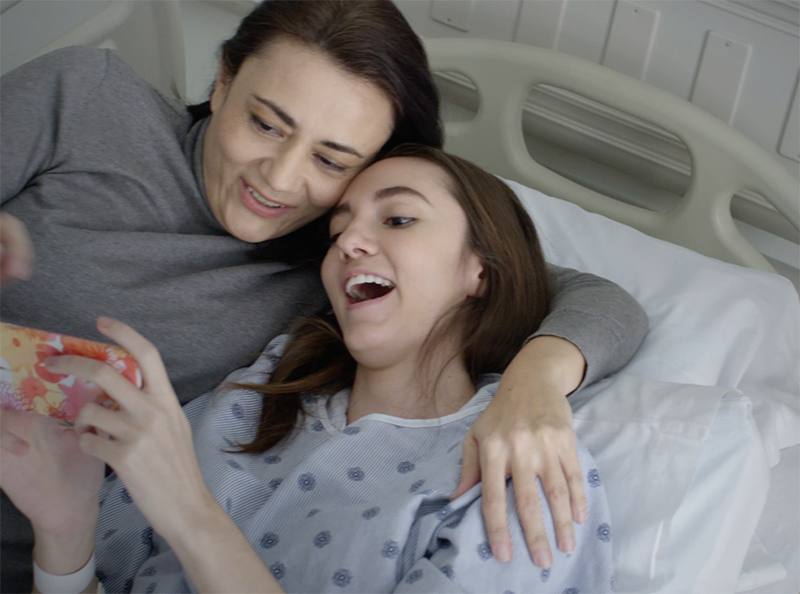Latest News
Clinical Care
VCU Massey Cancer Center partners with Children’s Hospital of Richmond at VCU to offer CAR T-cell therapy to children
Sep 24, 2019

This summer, VCU Massey Cancer Center in partnership with Children’s Hospital of Richmond at VCU (CHoR) became a certified treatment center for Novartis’ KYMRIAH, an FDA-approved CAR T-cell therapy for acute lymphoblastic leukemia in children and young adults. Massey was the first in Virginia to offer an FDA-approved CAR T-cell therapy last year with Gilead’s YESCARTA, and the addition of KYMRIAH is another milestone in providing expanded access to cutting-edge cellular immunotherapies.
KYMRIAH is made from the patient’s own T-cells, a type of immune system cell. The T-cells are collected from the patient’s blood, genetically modified in a laboratory to recognize and attack cancer cells and then infused back into the patient. The treatment is approved for children and young adults up to 25 years old whose cancer has relapsed or has not responded to prior therapies.
“CAR T-cell therapies are one of the most groundbreaking developments in the history of cancer treatments. Many of the patients who are eligible for KYMRIAH have run out of treatment options, and so it gives us another tool to manage their disease,” says John M. McCarty, M.D., director of the Cellular Immunotherapies and Transplant Program at VCU Massey Cancer Center and interim chair of the Division of Pediatric Hematology-Oncology at Children’s Hospital of Richmond at VCU.
“KYMRIAH offers a chance at life-saving therapy for patients who previously had extremely poor prognosis, even among patients who relapsed following stem cell transplant. The two-year data on the durability of response with KYMRIAH is very promising, with over 60 percent of patients in remission at 24 months,” says Christina Wiedl, D.O., the director of the pediatric and young adult cellular therapy program at CHoR and member of the Developmental Therapeutics research program at Massey. “It is exciting to be able to offer a new form of treatment to those who need it the most.”
CAR T-cell therapies carry unique risks and may not be the best option for everyone. Massey and CHoR carefully evaluate each patient and work with them and their referring physicians to create a personalized care plan that weighs the risks and benefits of every treatment approach.
One of the most serious risks associated with CAR T-cell therapies is cytokine release syndrome (CRS), also known as a “cytokine storm.” CRS is a result of the way the drug works—the genetically modified T-cells cause an inflammatory response as they attack cancer cells. The symptoms may not seem serious at first, but they can rapidly worsen and lead to neurological complications. It’s imperative to have a comprehensive team that can modulate the impact of CRS while supporting the patient, which is why the treatment is typically only offered at National Cancer Institute-designated cancer centers.
“Massey’s long-standing clinical collaborations with pediatric experts at CHoR and with our critical care teams are key parts of our comprehensive program,” says McCarty. “Patients receiving CAR T-cell therapy at Massey and CHoR will stay at the hospital for at least two weeks after infusion, and they must remain within a 30-minute drive for an additional month in order for the care team to be able to rapidly and effectively address the unique side effects that can occur with this therapy. During that time, they are advised to visit us at the onset of even the mildest symptoms to receive immediate access to care.”
Cellular immunotherapy and transplant coordinators guide patients and their caregivers through the entire process. They help coordinate medical records, schedule tests, navigate insurance, assist with transportation, arrange treatment and follow-up appointments, manage side effects, develop survivorship plans and more.
Plans are underway to offer more cellular immunotherapies at Massey. McCarty and his team have been collaborating with clinical research cooperative groups and drug manufacturers around the country and expect to open several clinical trials this year testing genetically modified cellular therapies for cancer and other diseases, such as sickle cell anemia.
“We are only in the beginning stages of realizing the potential of these treatments, and we have made significant investments in time, training and resources to offer promising new cellular therapies as they are approved by the FDA or tested in clinical trials,” says McCarty. “We’re honored to be able to offer new treatment options to patients in Virginia and beyond.”
For more information about CAR T-cell therapies and other treatments provided by Massey’s Cellular Immunotherapies and Transplant Program, please visit www.MasseyCIT.org, call (804) 628-2079 or email judith.davis@vcuhealth.org.
Written by: John Wallace
Related News
Clinical Care, Patient Stories
How a friend’s leukemia inspired a career in oncology nursingDec 16, 2025
Clinical Care, Prevention
VCU Massey now offers new technology for early detection of lymphedemaDec 8, 2025
Clinical Care, Patient Stories
Breast cancer survivor heals her heart, leans into advocacy for othersDec 1, 2025

Get access to new, innovative care
Treatments in clinical trials may be more effective or have fewer side effects than the treatments that are currently available. With more than 200 studies for multiple types of cancers and cancer prevention, Massey supports a wide array of clinical trials.

Find a provider
Massey supports hundreds of top cancer specialists serving the needs of our patients. Massey’s medical team provides a wealth of expertise in cancer diagnosis, treatment, prevention and symptom management.
